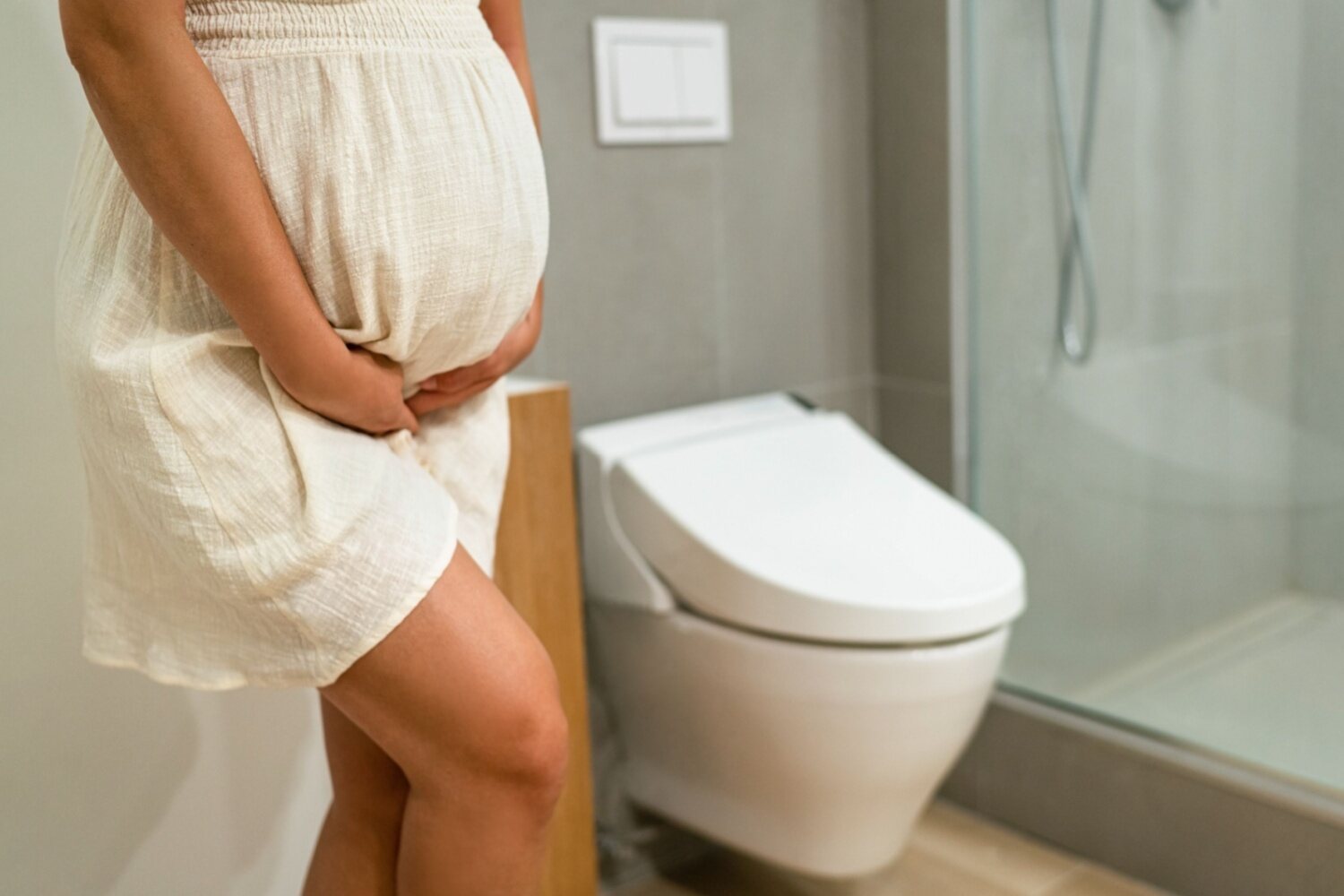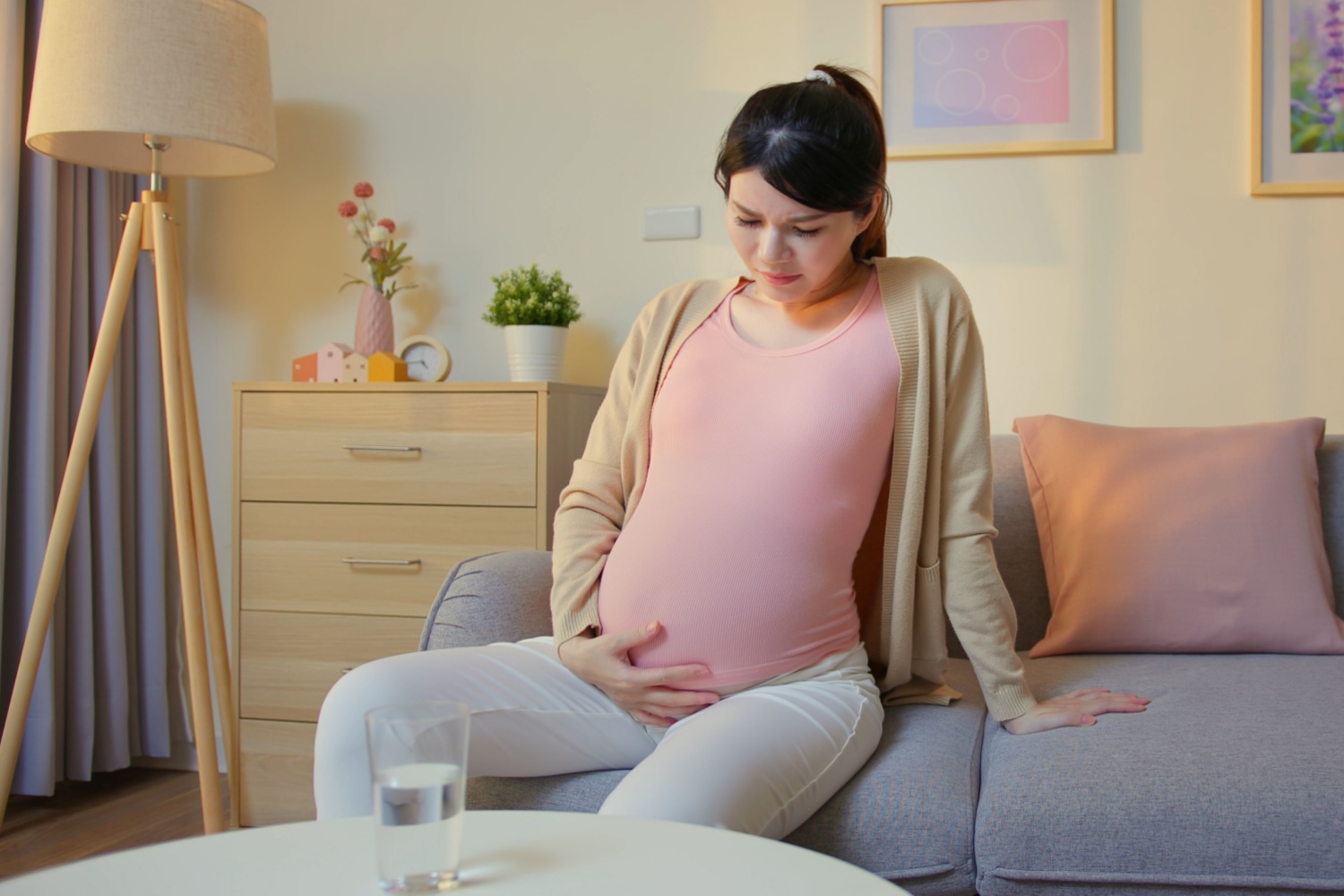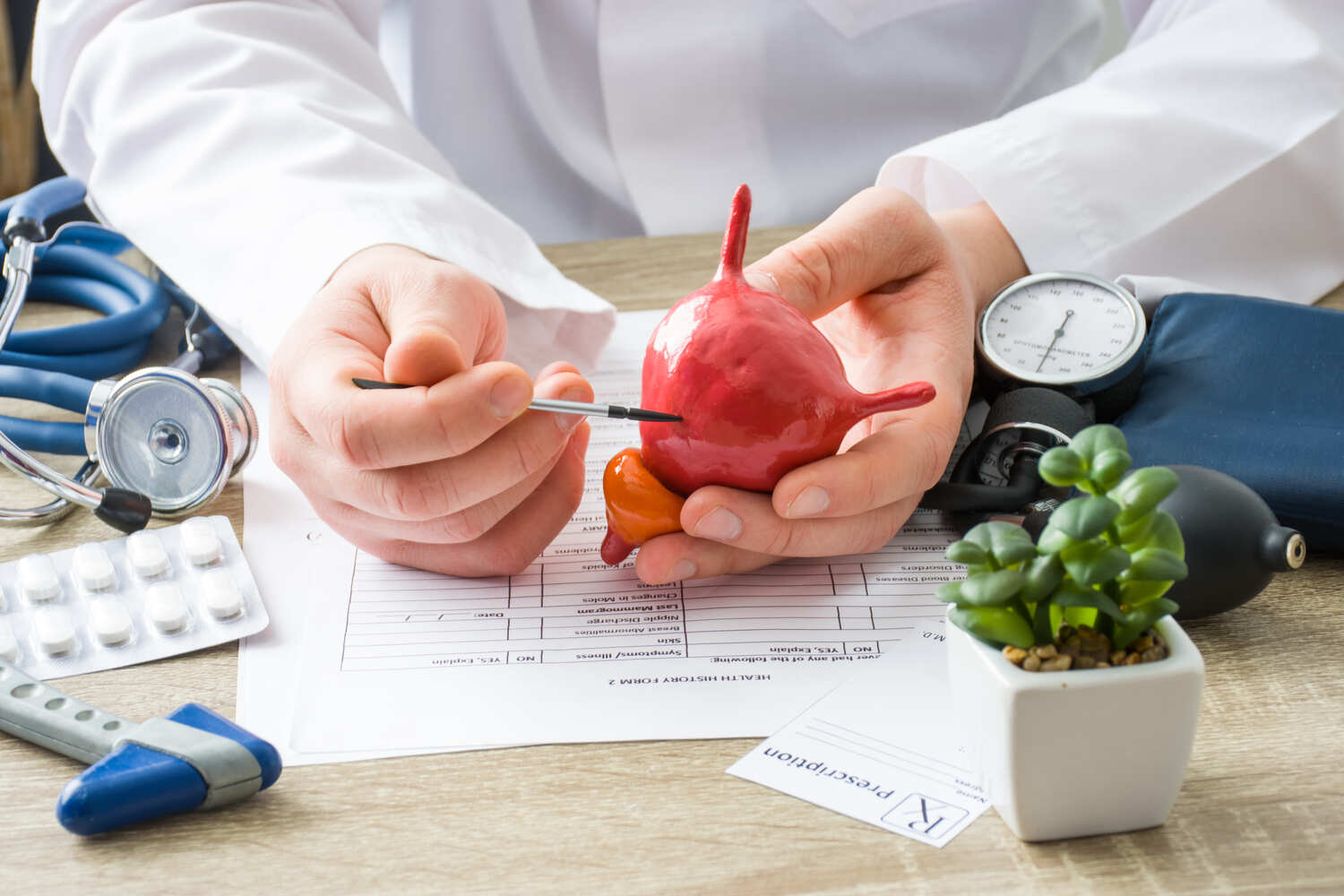 Staying hydrated is really essential for the well- being of both the mother and the baby during pregnancy. Many women experience an increase in the frequency of urination during pregnancy. It is due to the increase in blood flow in your body. This increase in frequency is normal and can be really annoying too.
Staying hydrated is really essential for the well- being of both the mother and the baby during pregnancy. Many women experience an increase in the frequency of urination during pregnancy. It is due to the increase in blood flow in your body. This increase in frequency is normal and can be really annoying too.
Frequent urination during pregnancy is a normal part of this journey. You might notice it the first few weeks itself or during the later part of your pregnancy journey. There is no need to worry as it won’t harm you or your baby. Read on more about how to manage it well.
In This Article
- What Is Frequent Urination?
- When Does Frequent Urination Start During Pregnancy?
- Is Frequent Urination During Pregnancy Normal?
- Causes of Frequent Urination During Pregnancy
- How is Frequent Urination Diagnosed?
- What Is Urinary Incontinence?
- Tips to Manage Frequent Urination During Pregnancy
- Can Pregnancy Peeing Be a Sign of a Problem?
- When Will Frequent Urination During Pregnancy Ease Up?
- FAQ’s
What Is Frequent Urination?
Frequent urination simply means going to the washroom more frequently than the normal you do in a day. It’s a relative term and the frequency differs from person to person. Frequent urination during pregnancy is a very common finding. On an average, a person needs to urinate about six to seven times a day. So, needing to use the restroom more than seven times means an increase in frequency.
When Does Frequent Urination Start During Pregnancy?
 This increase in urinary frequency can start as early as 4 weeks of pregnancy. Hence, it is a very common early sign of pregnancy. Some penne develop this symptom only when the growing uterus starts pushing the urinary bladder. This happens around 10-13 weeks. The frequency eases a bit during the second trimester, when the uterus rises high in the abdomen. Later in the third trimester and around the time of labor and delivery, it will return due to too much pressure on the bladder again.
This increase in urinary frequency can start as early as 4 weeks of pregnancy. Hence, it is a very common early sign of pregnancy. Some penne develop this symptom only when the growing uterus starts pushing the urinary bladder. This happens around 10-13 weeks. The frequency eases a bit during the second trimester, when the uterus rises high in the abdomen. Later in the third trimester and around the time of labor and delivery, it will return due to too much pressure on the bladder again.
Is Frequent Urination During Pregnancy Normal?
Yes, this increase in precinct is very normal during pregnancy. Although, this varies from woman to woman. Some women hardly feel any change in their urination pattern while, some feel that they are spending a lot of time in the loo. Some notice no changes in early pregnancy, and have issues later on while the initial days itself can be troublesome in a few women. This difference may be due to different hormonal levels in different women.
Causes of Frequent Urination During Pregnancy
 The urge to urinate more in pregnancy are broadly related with hormonal changes early in the pregnancy and physical changes in the later part of pregnancy. The causes are:
The urge to urinate more in pregnancy are broadly related with hormonal changes early in the pregnancy and physical changes in the later part of pregnancy. The causes are:
- The blood flow nearly doubles during pregnancy. The total body water increases by approximately 6.5-8 liters[1]. This causes more fluid to reach the kidneys and so, more urine is filtered out by the kidneys.
hCG hormone levels rise during pregnancy leading to increase in blood flow to the pelvic area and the kidneys. - In pregnancy, the ligaments of the body loosen up. This means that the ligament around the urethra also loosens, reducing the capacity to hold the urine.
- In the third trimester, the uterus keeps on expanding to accommodate the baby. This puts constant pressure on the urinary bladder and hence causes frequent urge to urinate.
- Weakening of the pelvic floor muscles also happens during pregnancy. Hence, holding urine for longer periods becomes impossible.
- Nearing labor and delivery, the head of the baby drops in the pelvis leading to more frequent toilet visits.
How is Frequent Urination Diagnosed?
Although it’s a usual finding in pregnancy, your doctor may order certain tests if it’s getting really troublesome. Certain tests are:
- Urinalysis is done to check the urine microscopically for the presence of any bacteria or fungus.
- Ultrasound to visualize the urinary bladder.
- Cystoscopy where the doctor can examine the bladder and the urethra internally with the help of a cystoscope.
- Blood tests like renal function test, blood sugars and electrolyte levels can also help in assessing the condition.
What Is Urinary Incontinence?
 Urinary incontinence is the loss of bladder control leading to abnormal uncontrollable urine leakage. This leak could range from a few drops to a lot of urine. It can be embarrassing for women and can hamper their day-to-day activities. According to some studies, incontinence is quite common in pregnancy [2]. There are three types of urinary incontinence:
Urinary incontinence is the loss of bladder control leading to abnormal uncontrollable urine leakage. This leak could range from a few drops to a lot of urine. It can be embarrassing for women and can hamper their day-to-day activities. According to some studies, incontinence is quite common in pregnancy [2]. There are three types of urinary incontinence:
1. Stress Urinary Incontinence
It arises due to the pressure of the uterus over the bladder and due to weak pelvic floor muscles. This causes urine to leak during heavy lifting heavy weights, coughing, sneezing, laughing and during heavy exercises. Most likely it happens during the third trimester and during the postpartum period. It is the most common form of urinary incontinence in pregnant women with a prevalence rate of around 41% [3].
2. Urgency Urinary Incontinence
Here, there is an intense urge to urinate right away and the leak happens on the way to the washroom itself. It is generally due to an overactive bladder.
3. Mixed Urinary Incontinence
This includes symptoms of both stress and urgency urinary incontinence.
Tips to Manage Frequent Urination During Pregnancy
The need to urinate more often can be tiring and frustrating during pregnancy. Here are a few important tips to avoid peeing frequently:
- Limiting the consumption of tea, coffee and soda can help in reducing your bathroom visits. These beverages act as diuretics and can make you pee more.
- Limiting the intake of fluids a few hours before bedtime can help prevent frequent night visits to the loo. This means that you take adequate fluids during the daytime.
- Empty bladder completely by leaning forward every time you pee.
- Performing kegel exercises regularly help in strengthening the pelvic floor muscles. There are studies showing improvement of urinary incontinence with the use of these exercises [3].
Can Pregnancy Peeing Be a Sign of a Problem?
 Usually there is nothing serious with this problem in pregnancy. In a few situations, it is advised to see a doctor. These are pain or discomfort while urinating, a burning sensation or fever. These all can be signs of a urinary tract infection. Untreated urinary infections can cause complications in pregnancy like pyelonephritis, preterm labor or still birth [4].
Usually there is nothing serious with this problem in pregnancy. In a few situations, it is advised to see a doctor. These are pain or discomfort while urinating, a burning sensation or fever. These all can be signs of a urinary tract infection. Untreated urinary infections can cause complications in pregnancy like pyelonephritis, preterm labor or still birth [4].
Frequent urination can also be due to development of gestational diabetes. If increase in urinary frequency is along with increased thirst, nausea and fatigue then it is best to see your healthcare provider. The test for gestational diabetes is generally recommended during 24-28 weeks of pregnancy.[5]
When Will Frequent Urination During Pregnancy Ease Up?
Frequent urination will last throughout the pregnancy up to the last month and delivery. In some women this symptom eases after the baby is born. In many women, symptoms last after delivery too. This happens because the pelvic floor muscles are still weak [6]. Most of the women recover by 3-6 months while some take still longer to get better.
Frequent urination in pregnancy is a common and unavoidable condition in women. It can cause a lot of discomfort in women and unfortunately there is nothing much that can be done about it. A few simple tips that are mentioned above can actually help a lot of expecting mothers.
FAQ’s
1. How Many Times Does A Pregnant Woman Urinate In A Day?
Urination during pregnancy generally increases than the average times due to increase in fluid levels in the body. It’s a relative term and differs from woman to woman. Some might experience no change while others need to pee almost every hour.
2. Is It Normal To Urinate 20 Times A Day?
Some women might need to urinate this many times a day, usually in the third trimester. This is normal as long as there are no accompanying symptoms like pain, discomfort or burning sensation while urinating.
3. When Should I Worry About Frequent Urination?
There is no reason to worry about frequent urination. If you develop fever, pain, burning or stinging sensation while urinating, then it is advisable to see a doctor and get tested for urinary tract infections.
References –
- Alterations in physiology and anatomy during pregnancy
https://www.sciencedirect.com/science/article/abs/pii/S152169341300103X - Urinary incontinence in pregnant women and their quality of life
https://onlinelibrary.wiley.com/doi/abs/10.1111/j.1365-2702.2010.03421.x - Stress urinary incontinence in pregnant women: a review of prevalence, pathophysiology, and treatment
https://link.springer.com/article/10.1007/s00192-013-2061-7 - Urinary tract infection in pregnancy
https://journals.lww.com/sjkd/fulltext/2010/21020/Urinary_tract_infection_in_pregnancy.25.aspx#JCL0-2 - Screening and Diagnosis of Gestational Diabetes Mellitus, Where Do We Stand
https://www.ncbi.nlm.nih.gov/pmc/articles/PMC4866200/ - The effect of pregnancy and childbirth on pelvic floor muscle function
https://link.springer.com/article/10.1007/s00192-011-1501-5
